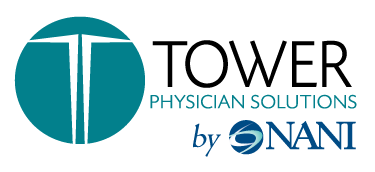
Identify and Improve your Practices Efficiency!
If you’re struggling with an inefficient medical practice, you’re not alone. According to Becker’s Hospital Review, 25 percent of specialists fall behind in their appointment schedules daily, 79 percent fall behind because patient visits last longer than expected, and 66 percent fall back because patients are late and don’t have time to fill out paperwork. Although there are various reasons in which practices fall behind and into inefficiency, consider the following factors that could be stunting productivity at your nephrology practice.
Why is your nephrology practice struggling with practice efficiency?
● Outdated technology:
Is your practice still manually completing the majority of administrative tasks? Switching from manual to an automated system can not only save time but an estimated $9.4 billion a year for medical health plans and providers. If your technology is old, it could be hurting your practice more than helping by slowing down your process.
● Administrative responsibilities know no boundaries:
If your staff isn’t utilized in the right way, according to their job title, your practice could suffer from inefficiency. Is your team overwhelmed by administrative tasks that stop them from completing their primary responsibilities? Is your staff using the skills for which they were uniquely trained? 59 percent of professionals who report physician burnout attribute their condition to an overwhelming amount of bureaucratic tasks.
● No performance management:
Is your practice’s work environment so out-of-control that you have no time to track performance? Lack of awareness of what causes dips and drops in your business will result in repeated, unwelcome surprises that stunt efficiency. Without tracking costs, collections, and workflows, how can you reach revenue goals?
These are only a few areas in which your nephrology practice efficiency may be slowed—but regardless of where you’re struggling, consider implementing these tips to ensure practice efficiency that can improve physician, patient, and business well-being.
5 Tips to Improve Nephrology Practice Efficiency:
1. Latest technology:Ensure the system or software you choose is up-to-date and will continually update—if your technology is old, it could serve as a hindrance by slowing down administrative tasks.
2. Administrative team:
Consider hiring a team, purchasing software, finding a third-party service, or any other resource dedicated solely to managing administrative tasks. For example, the medical billing and collection practice is a job in itself—is your practice adequately equipped to execute this process efficiently?
3. Performance management:
Participate in preventative care for your practice. Just like early-detection is vital to patient health, acknowledging and anticipating challenges your business is key to increasing practice efficiency. Look for dips in productivity and profitability and address them before they happen again.
4. Morning meeting:
Morning meetings are another way to take preventative care of your practice and improve communication among the entire team. Take fifteen minutes to cover the daily outlook by addressing key questions— what challenges might your team encounter today? How can you solve them? What does the schedule look like for today? Were appointments canceled or rescheduled? How might this affect the entire team? What other information could benefit the staff in striving for practice efficiency?
5. Proper scheduling:
47 percent of physicians claim that they fall behind because appointments are booked in small windows and 31 percent say appointments are overbooked. Open the lines of communication between physicians and administrative staff—do your scheduling guidelines need to change?
Learn more at: towerps.com Contact Tower today for more information regarding business strategy support for your practice.
Learn more at: https://towerps.com

